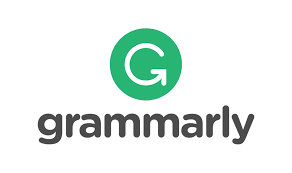The Implementation of Play-Based Learning in English Vocabulary Learning at Kindergarten Learners Level
DOI:
https://doi.org/10.57176/jn.v5i1.184Keywords:
anak usia dini, kosa kata bahasa Inggris, kualitatif , play-based learningAbstract
Masa kanak-kanak awal merupakan fase penting bagi perkembangan bahasa dan interaksi sosial. Meskipun Play-Based Learning (PBL) telah lama diakui mampu mendukung kreativitas dan pertumbuhan emosional, potensinya dalam penguasaan kosakata bahasa kedua masih jarang diteliti. Di RA Anak Emas, pengajaran bahasa Inggris telah diintegrasikan melalui penerapan PBL. Penelitian ini bertujuan mengeksplorasi bagaimana PBL mendukung pembelajaran kosakata anak usia dini. Dengan pendekatan kualitatif deskriptif, penelitian melibatkan 18 anak berusia 4–6 tahun yang diamati selama delapan minggu melalui observasi nonpartisipan terstruktur. Analisis menggunakan tipologi permainan Edwards Open-ended, Modeled Play, dan Purposefully-Framed Play dengan fokus pada penggunaan kosakata dan keterlibatan sosial, seperti giliran berbicara, kerja sama, dan produksi bahasa spontan. Hasil penelitian menunjukkan bahwa ketiga jenis permainan mendorong partisipasi aktif, penggunaan kosakata secara kontekstual, dan kolaborasi antar teman sebaya. Selain itu, muncul perilaku berulang yang mencerminkan empati dan inisiatif kognitif yang tidak tercakup dalam kerangka Edwards. Untuk itu, peneliti mengusulkan kategori baru, yaitu Interpersonal Constructive Play, yang menekankan interaksi kaya emosi dan berbasis ide, yang kerap terabaikan dalam taksonomi permainan tradisional. Kontribusi ini memperluas kerangka teoretis PBL dengan menegaskan pentingnya keseimbangan antara permainan terstruktur dan ruang bagi ekspresi spontan, empati, serta keterlibatan kognitif. Temuan ini memberikan implikasi praktis bagi pendidik dan perancang kurikulum dalam menciptakan pembelajaran bahasa Inggris yang lebih holistik dan inklusif bagi anak usia dini.
_____________________________________________________________________________________________________
Early childhood is a critical stage for language development and social interaction. While Play-Based Learning (PBL) is widely recognized for fostering creativity and emotional growth, its specific potential in supporting second language vocabulary acquisition remains underexplored. At RA Anak Emas, where English instruction has long been integrated into classroom activities, PBL has been systematically implemented. This study aimed to explore how PBL supports kindergarteners’ vocabulary learning within this context. Adopting a qualitative descriptive approach, the study observed 18 children aged 4–6 years over eight weeks through structured non-participant observation. Guided by Edwards’ typology Open-ended, Modeled Play, and Purposefully-Framed Play the analysis focused on indicators of vocabulary use and social engagement, including turn-taking, cooperation, and spontaneous language production. Findings revealed that the three types of play fostered active participation, contextual vocabulary use, and peer collaboration. Notably, recurring behaviors reflecting empathy and cognitive initiative emerged beyond Edwards’ framework. To capture this dimension, the researchers propose an additional category: Interpersonal Constructive Play, which highlights emotionally rich, idea-driven interactions often overlooked in traditional play taxonomies. This conceptual contribution extends the theoretical landscape of PBL by emphasizing the importance of balancing structured activities with opportunities for spontaneous, empathetic, and cognitively active engagement. The study offers practical implications for early childhood educators and curriculum designers seeking to create holistic and inclusive English learning experiences for young learners
References
Ali, E., Kaitlyn M, C., Hussain, A., & Akhtar, Z. (2018). the Effects of Play-Based Learning on Early Childhood Education and Development. Journal of Evolution of Medical and Dental Sciences, 7(43), 4682–4685. https://doi.org/10.14260/jemds/2018/1044
Astutik, Y., Setiawan, S., & Anam, S. (2022). The Ambivalent Students’ Cognition to Be English Teachers for Young Learners: A Longitudinal Study. Frontiers in Psychology, 13(March). https://doi.org/10.3389/fpsyg.2022.818883
Ayling, P. (2012). Learning through Playing in Higher Education: Promoting Play as a Skill for Social Work Students. Social Work Education, 31(6), 764–777. https://doi.org/10.1080/02615479.2012.695185
Charles, N. A., & Mumuni, T. (2018). Unpacking activities-based learning in kindergarten classrooms: Insights from teachers perspectives. Educational Research and Reviews, 13(1), 21–31. https://doi.org/10.5897/err2017.3397
Davern, L. I. M. (2019). An exploration of infant teacher understanding of play-based pedagogy within the Irish context. 2019.
Davis, B., Tu, X., Georgen, C., Danish, J. A., & Enyedy, N. (2019). The impact of different play activity designs on students’ embodied learning. Information and Learning Science, 120(9–10), 611–639. https://doi.org/10.1108/ILS-08-2019-0081
Edwards, S. (2017). Play-based learning and intentional teaching: Forever different? Australasian Journal of Early Childhood, 42(2), 4–11. https://doi.org/10.23965/AJEC.42.2.01
Farida, N., & Rasyid, H. (2019). The Effectiveness of Project-based Learning Approach to Social Development of Early Childhood. 296(Icsie 2018), 369–372. https://doi.org/10.2991/icsie-18.2019.67
Hansmann, C. (2022). The Value of Play-Based Learning in Early Childhood Classrooms. 1–23. https://nwcommons.nwciowa.edu/education_masters
Hatfield, B. E., Burchinal, M. R., Pianta, R. C., & Sideris, J. (2016). Thresholds in the association between quality of teacher-child interactions and preschool children’s school readiness skills. Early Childhood Research Quarterly, 36, 561–571. https://doi.org/10.1016/j.ecresq.2015.09.005
Hedges, H., & Cooper, M. (2018). Relational play-based pedagogy: theorising a core practice in early childhood education. Teachers and Teaching: Theory and Practice, 24(4), 369–383. https://doi.org/10.1080/13540602.2018.1430564
Hill, M., & McCoy, R. (2018). The Impact of Play-Based Learning on Early Childhood Development. Early Childhood Education Journal, 46(4), 341–349. https://doi.org/10.1007/s10643-017-0897-5.
Howell, C. B. (2024). The Value of Play in an International Baccalaureate Primary Years Program Preschool Classroom.
Irvin, M. (2017). The Importance of Play in Early Childhood Development. Family and Human Development, 4(10), 1–3. https://nwcommons.nwciowa.edu/cgi/viewcontent.cgi?article=1067&context=education_masters
Kesäläinen, J., Suhonen, E., Alijoki, A., & Sajaniemi, N. (2022). Children’s play behaviour, cognitive skills and vocabulary in integrated early childhood special education groups. International Journal of Inclusive Education, 26(3), 284–300. https://doi.org/10.1080/13603116.2019.1651410
Kroll, B. (2017). Play as a social justice issue in early childhood education. https://educate.bankstreet.edu/independent-studies/193/%0Ahttps://educate.bankstreet.edu/cgi/viewcontent.cgi?article=1194&context=independent-studies
LaGamba, E. S. (2018). An Investigation Of Read-alouds, Classroom Interactions, and guided Play as Supports for Vocabulary Learning in Preschool. 21, 1–9.
Lamrani, R., & Abdelwahed, E. H. (2020). Game-based learning and gamification to improve skills in early years education. Computer Science and Information Systems, 17(1), 339–356. https://doi.org/10.2298/CSIS190511043L
Mardell, B., Wilson, D., Ryan, J., Ertel, K., Krechevsky, M., & Baker, M. (2016). Towards a Pedagogy of Play. A Project Zero Working Paper The Pedagogy of Play Research Team, July, 1–17. http://pz.harvard.edu/sites/default/files/Towards a Pedagogy of Play.pdf
Meaney, T., Severina, E., Gustavsen, M., Hoven, C. S., & Larsen, S. B. (2024). Mathematical and Computational Thinking in Children’s Problem Solving with Robots. In Teaching Mathematics as to be Meaningful – Foregrounding Play and Children’s Perspectives. https://doi.org/10.1007/978-3-031-37663-4_8
Moore, D., Edwards, S., Cutter-Mackenzie, A., & Boyd, W. (2014). Play-Based Learning in Early Childhood Education. 9–24. https://doi.org/10.1007/978-3-319-03740-0_2
Mpella, M., Evaggelinou, C., Koidou, E., & Tsigilis, N. (2019). The effects of a theatrical play programme on social skills development for young children with autism spectrum disorders. International Journal of Special Education, 33(4), 828–845.
Newman, K. M. (2019). Teacher and child verbal behaviors during guided play: An exploration of vocabulary learning mechanisms (Doctoral dissertation, Vanderbilt University).
Rachel Parker, & Bo Stjerne Thomsen. (2019). Learning through play at school: A study of playful integrated pedagogies that foster children’s holistic skills development in the primary school classroom. In Literacy Research and Instruction (Vol. 57, Issue 1). https://doi.org/10.1080/19388071.2017.1400612
Tang, J. T., Chu, S. T., & Chang, T. F. (2024). Enhancing English alphabet handwriting skills in preschool children through digital game-based learning approach. Innovation in Language Learning and Teaching, 1-19.
Tilbe, Y. T., & Gai, X. (2022). Teacher-child interactions in early childhood education and its effects on social and language development. Early Child Development and Care, 192(5), 761–774. https://doi.org/10.1080/03004430.2020.1798944
Welding, A. (2022). Social and Emotional Skills Develop Through Play-Based Learning. 1–24. https://nwcommons.nwciowa.edu/cgi/viewcontent.cgi?article=1463&context=education_masters
Wood, E. A. (2014). Free choice and free play in early childhood education: Troubling the discourse. International Journal of Early Years Education, 22(1), 4–18. https://doi.org/10.1080/09669760.2013.830562
Downloads
Published
How to Cite
Issue
Section
License
Copyright (c) 2025 M. Sukron Hamdi, Yuli Astutik, Dian Novita

This work is licensed under a Creative Commons Attribution-ShareAlike 4.0 International License.
You are free to:
- Share — copy and redistribute the material in any medium or format for any purpose, even commercially.
- Adapt — remix, transform, and build upon the material for any purpose, even commercially.
- The licensor cannot revoke these freedoms as long as you follow the license terms.
Under the following terms:
- Attribution — You must give appropriate credit , provide a link to the license, and indicate if changes were made . You may do so in any reasonable manner, but not in any way that suggests the licensor endorses you or your use.
- ShareAlike — If you remix, transform, or build upon the material, you must distribute your contributions under the same license as the original.
- No additional restrictions — You may not apply legal terms or technological measures that legally restrict others from doing anything the license permits.
Notices:
You do not have to comply with the license for elements of the material in the public domain or where your use is permitted by an applicable exception or limitation .
No warranties are given. The license may not give you all of the permissions necessary for your intended use. For example, other rights such as publicity, privacy, or moral rights may limit how you use the material.
















